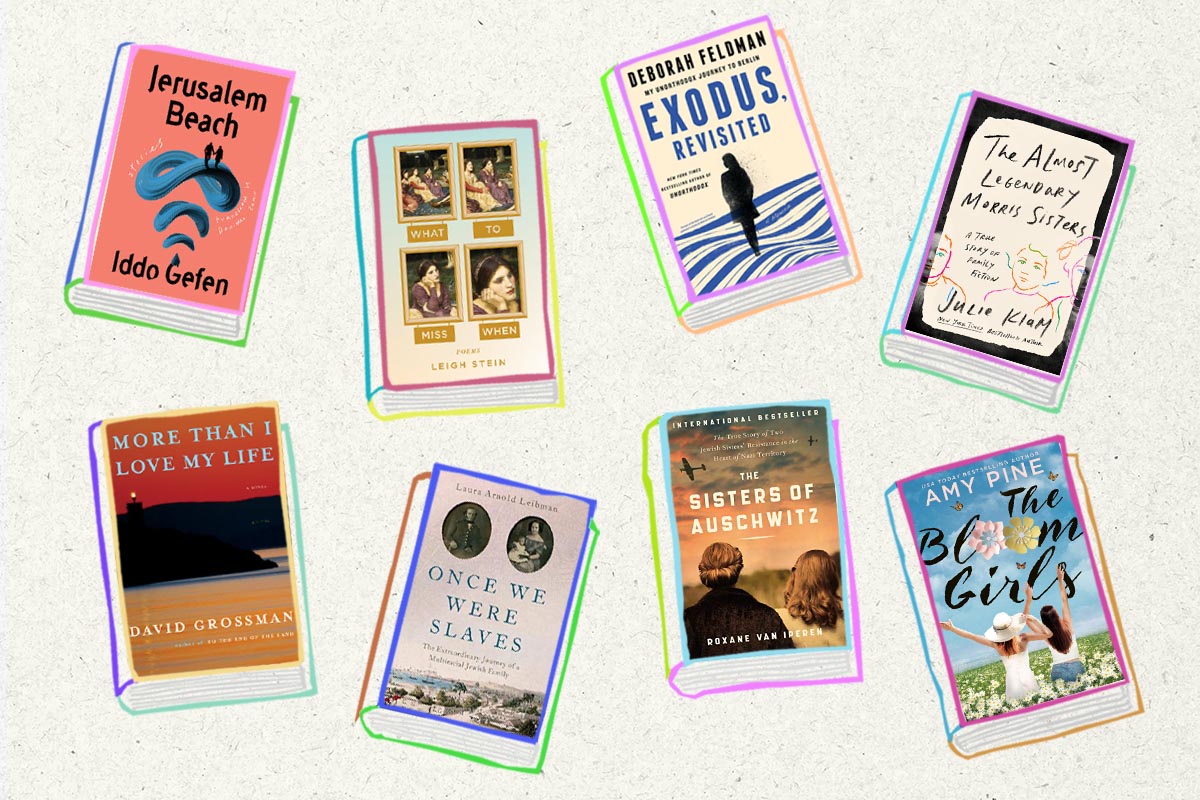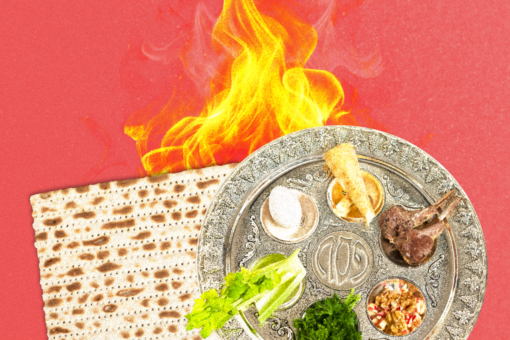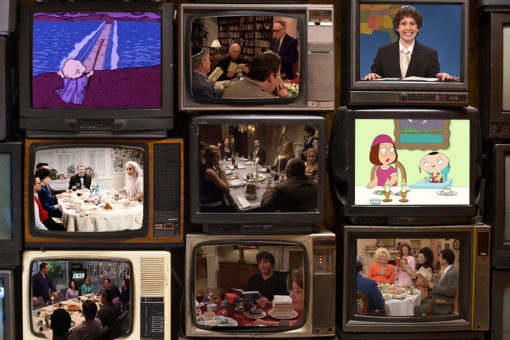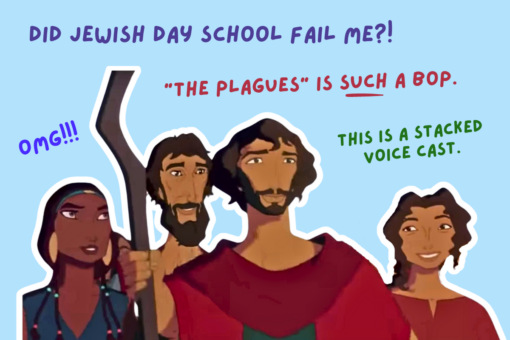New month, new books to read! Here are eight great new Jewish books getting released this month, curated just for you — plus scroll down for even more Jewish books of note to check out! As is the case every month, this list is all shoppable on Bookshop, a platform supporting local bookstores. Happy reading!
1. The Almost Legendary Morris Sisters by Julie Klam (August 10)
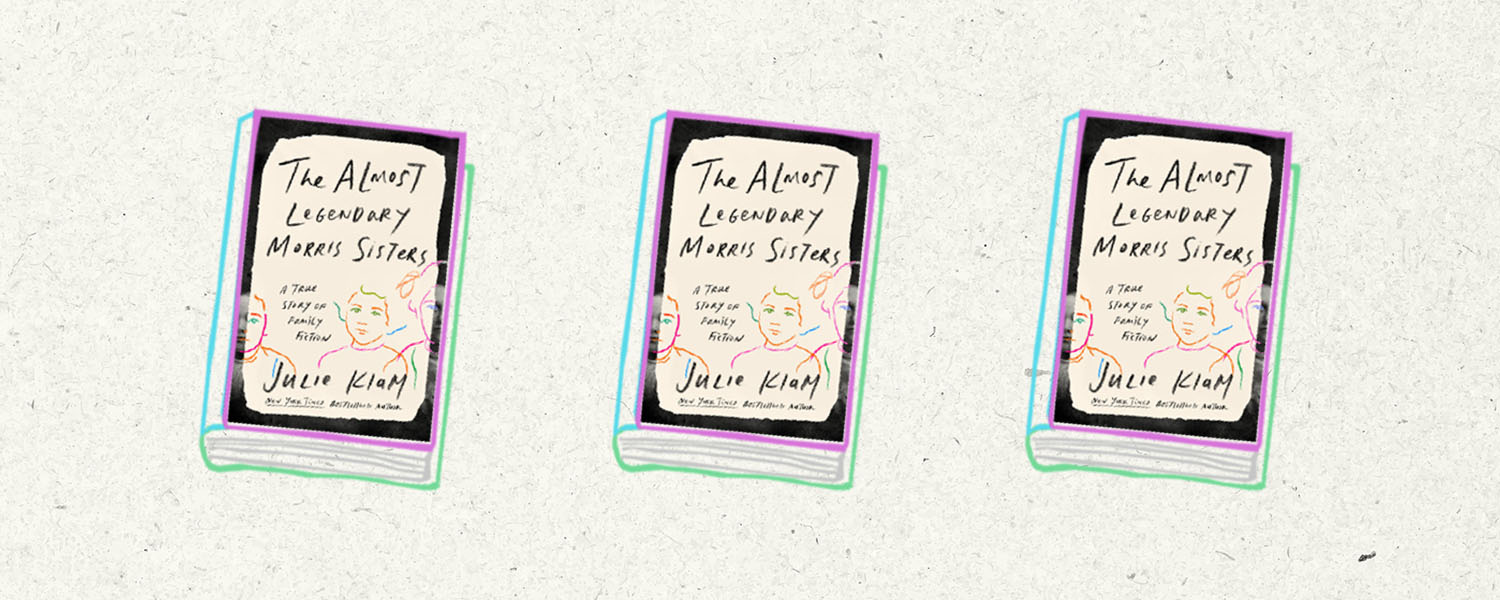
Author Julie Klam was always fascinated by the story of her grandmother’s cousins, the Morris sisters. Here’s what she thought she knew: The Morris sisters’ parents decided to leave Eastern Europe for Los Angeles so their father could be a movie director. On their way to Hollywood, their mother went into labor in St. Louis, where she died in childbirth, and their father left the girls in an orphanage — promising to send for them, but he never did. They moved to New York, became wealthy, never married, chain-smoked their whole lives, and died in their late ’90s. But when Klam sets out to actually tell their story, she discovers much of what she thought she knew about the Morris sisters was completely wrong.
In a funny, moving and very Jewish book, Klam journeys from Romania to St. Louis to Southhampton to try and piece together the history of four women. What she finds along the way is a story of mental health, Jewish resilience and perseverance, and strong women. While she doesn’t end the book with all the answers she sought, the journey of trying to find them is ultimately what matters. A read for anyone who has ever thought about their Jewish family’s history. So, all of you?
Read if you’re into: family histories, Jewish genealogy, memoir. The Jewish angle: Allllll of it! This is a very, very Jewish book. Get it here.
2. More Than I Love My Life by David Grossman (translated by Jessica Cohen) (August 24)
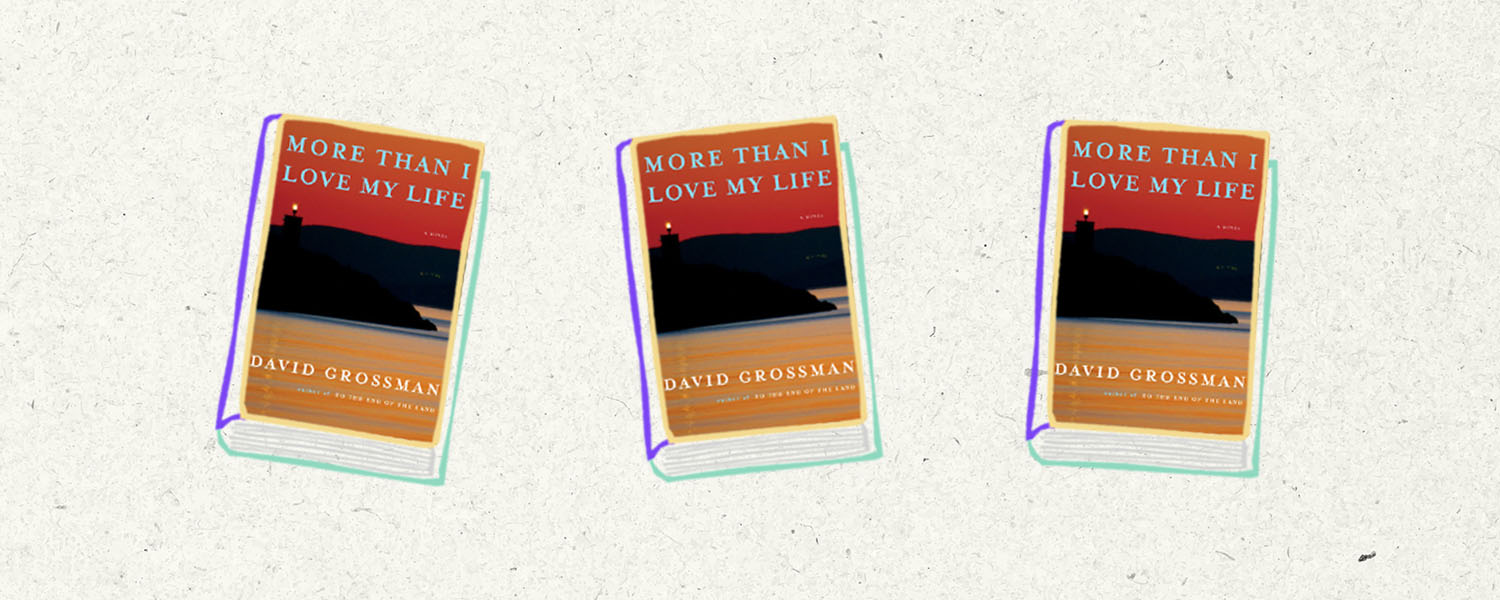
David Grossman’s newest novel is the story of three generations of women: Vera; her daughter, Nina; and her granddaughter, Gili. Gili and Nina have been estranged most of their lives; Nina left when Gili was just 3, so the toddler was raised by her grandmother. Nina, raised in Yugoslavia, still feels abandoned by Vera — an anti-Nazi partisan who was held in a prison camp. The story begins on a kibbutz in Israel in 2008, where Vera is celebrating her 90th birthday. But Nina’s arrival stirs up old feelings, and she asks Gili’s father, Rafael, to make a documentary on their relationship. The four travel from Israel to Goli Otok (literally “barren island” in Italian), an uninhabited island off the coast of Croatia that was the site of a political prison. The novel was inspired by the true story of Eva Panic-Nahir, who was held at Goli Otok, also called the “Adriatic Alcatraz.”
Grossman, a famous Israeli novelist, is perhaps known his 2008 novel “To the End of the Land,” about the Israeli-Palestinian conflict, and won the 2017 Man Booker International Prize for “A Horse Walks Into a Bar.” The Publisher’s Weekly review is what convinced me I needed to read this one, so perhaps it will work on you, too: “Grossman shines a light on the victims of the violent split between Tito and Stalin, as well as on the stories people tell themselves to explain, survive, and forgive. And in Vera, who is nimble and sharp at 90, endlessly self-mythologizing, and possessed of a broken Hebrew that Cohen renders into idiosyncratic broken English, the author has created an unforgettable character. This adds another remarkable achievement to Grossman’s long list.”
Read if you’re into: literary fiction. The Jewish angle: Besides the author being Jewish, you read the description, right? Get it here.
3. “The Sisters of Auschwitz: The True Story of Two Jewish Sisters’ Resistance in the Heart of Nazi Territory” by Roxane Van Iperen (translated by Joni Zwart) (August 31)
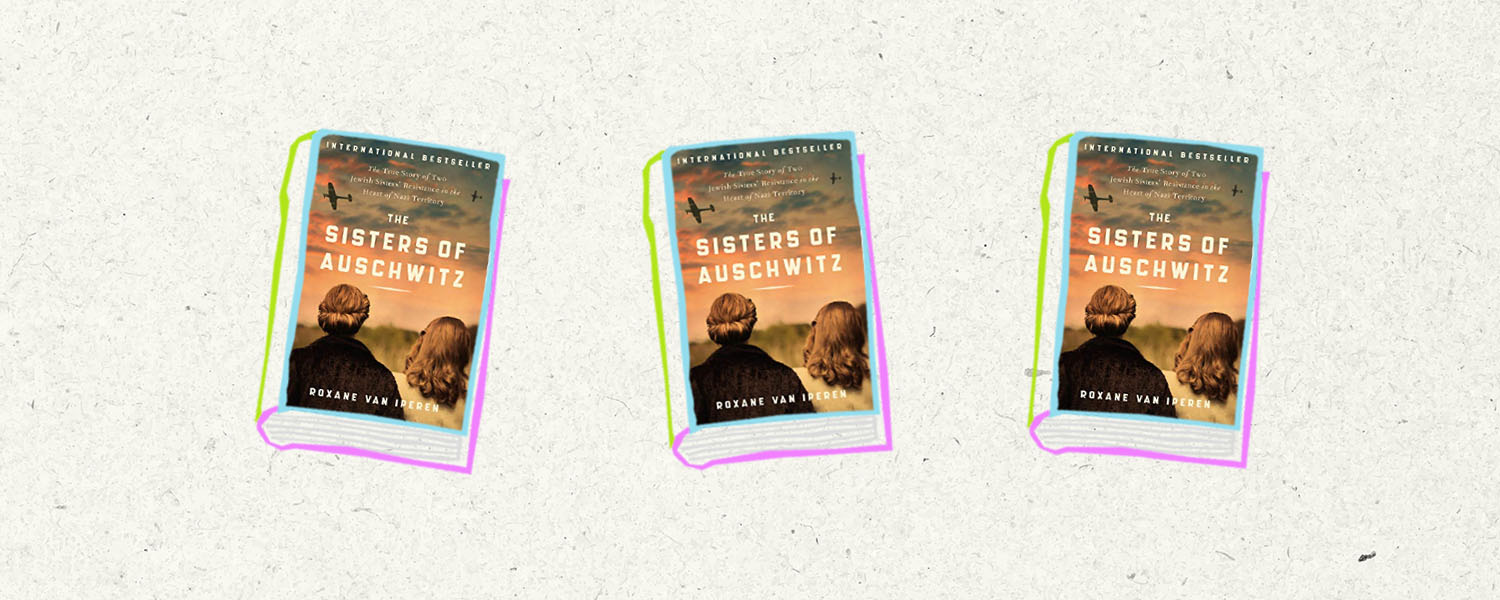
Dutch novelist Roxane Van Iperen tells the tale of Dutch Jewish sisters Janny and Lien Brilleslijper, who run The High Nest, a Jewish hideaway in the Netherlands. Eventually, they are caught and put on one of the last transports to Auschwitz. Van Iperen and her family moved into The High Nest, not knowing its history, but soon discovered the Holocaust history of their home. While the book is called “The Sisters of Auschwitz,” Auschwitz does not make up a significant part of their story. Rather, it is their drive to survive, and protect others, that propels this riveting non-fiction book forward. Eerie fact: Janny was the last person known to have seen Anne Frank alive. I found myself gripped by the narrative, even though I knew the ending. Though I write about Jewish books for a Jewish culture site, I don’t find myself reading too many Holocaust stories — yet I was completely enthralled by “The Sisters of Auschwitz.”
Read if you’re into: World War II/Holocaust stories. The Jewish angle: The Jewish sisters at the heart of the story. Get it here.
4. Jerusalem Beach by Iddo Gefen (translated by Daniella Zamir) (August 17)
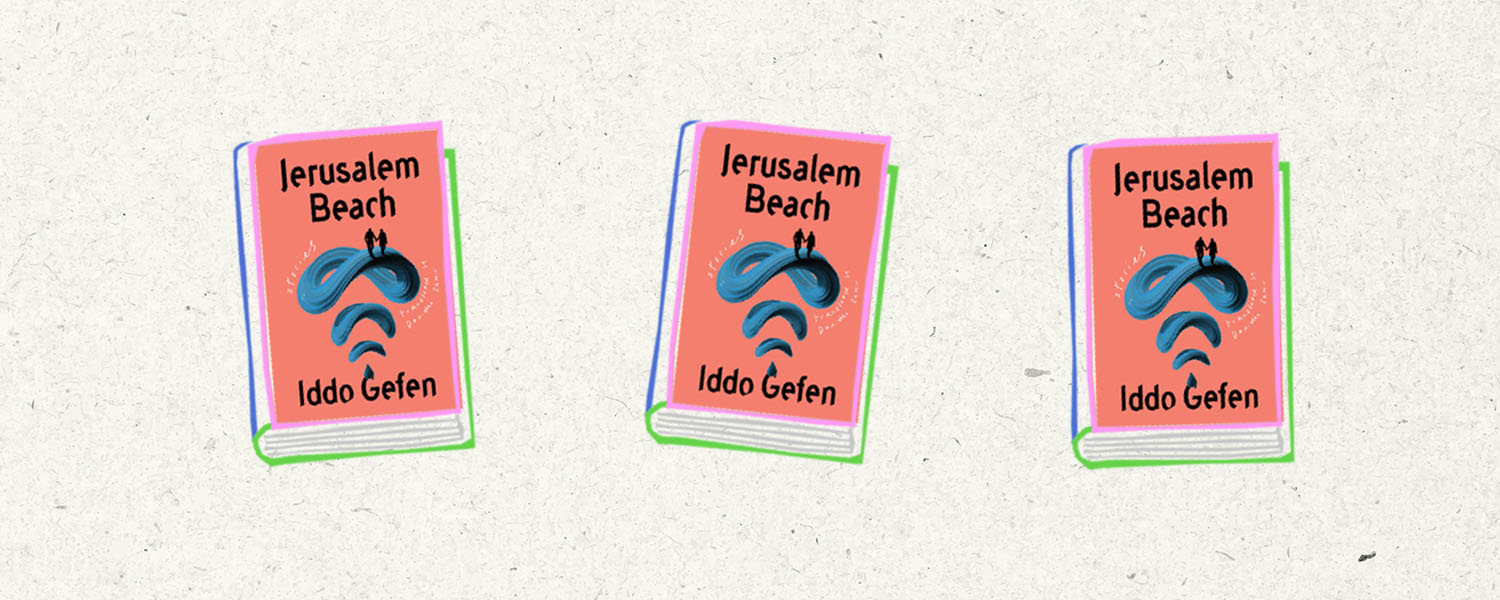
Israeli writer Iddo Gefen’s “Jerusalem Beach” shares 13 remarkable stories of modern life in Israel. Here’s an endorsement from the king of Israeli short stories, Etgar Keret, himself: “The stories in Iddo Gefen’s Jerusalem Beach are a series of original, and many times truly inspiring, attempts to seek and find humanity and tenderness at the least predictable places.” It touches on a few common themes — of failure and success, of families, of daily life — and each story carries powerful emotion. And, I included this in my summer books preview, but I need to include it again here: The author’s Jewish mom still has some critiques (of course). Geffen tweeted a link about a preorder with his headshot, writing, “My Jewish mom: ‘I am very excited that your book was translated to English, but it’s not an excuse not to shave before being photographed.’” Some things are just universal.
Read if you’re into: stories about Israel, short stories. The Jewish angle: Iddo Gefen is Jewish, all the stories are set in Israel. Get it here.
5. Exodus, Revisited: My Unorthodox Journey to Berlin by Deborah Feldman (August 31)
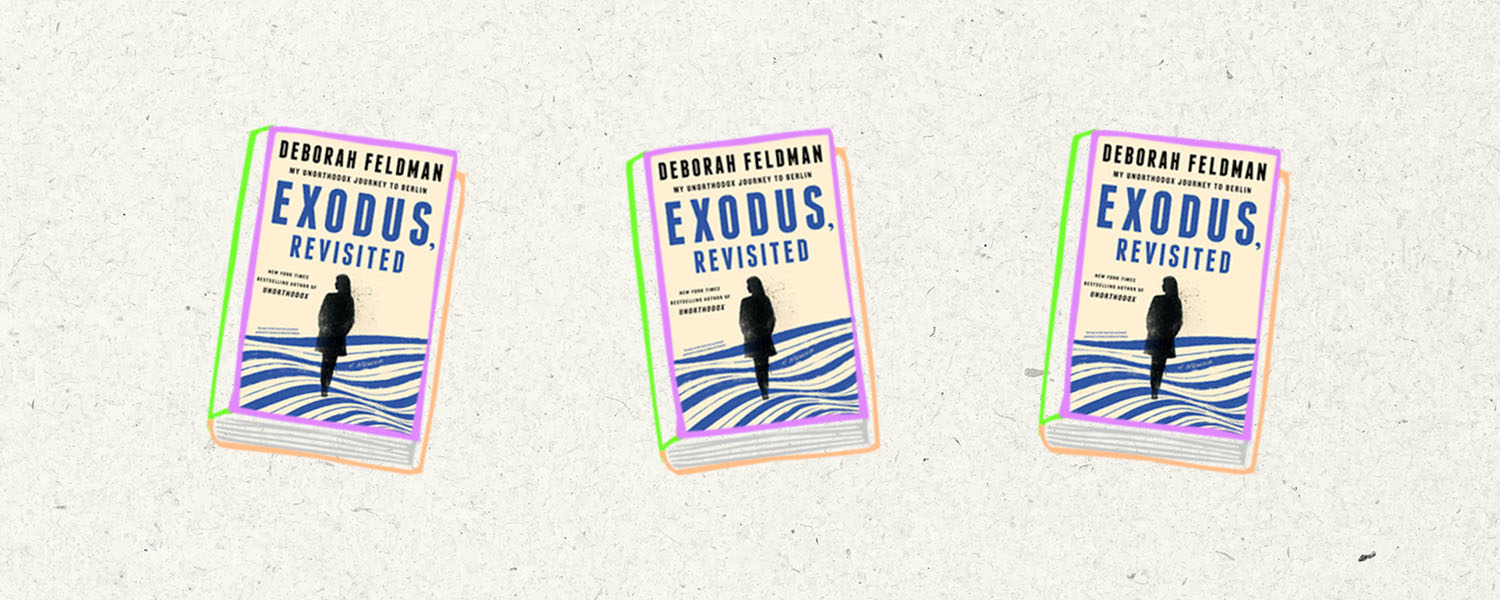
After the worldwide success of “Unorthodox,” the Netflix miniseries starring Shira Haas based on her memoir of the same name, Deborah Feldman returns with an updated memoir — first published in 2014, but revised to be released this year. Many already know the overall structure of Feldman’s story: At 23, she left her Hasidic community in Brooklyn and tried to figure out where she belongs — eventually settling in Berlin. “Exodus, Revisited” dives more fully into her decision to live in Berlin, and her journey of self-discovery throughout Europe.
“‘Unorthodox’ ended on the cliffhanger of my departure not because I wanted to deprive my audience of the satisfaction of knowing what happens next, but because I wrote the book too soon after leaving my community to know the next phase myself. My publisher proposed another memoir and enthusiastically advised me to travel across the country and write about finally becoming an American. I longed more than anything to be allowed to keep writing, to have a career writer, so although I was filled with anxiety, I was determined to try my best to follow this assignment. Yet I soon realized becoming American was impossible,” Feldman explains. “I had been raised in a world resembling an eighteenth-century European shtetl, where I had spoken a different language, consumed a different culture, and was subjected to religious law instead of civil law. It may well be an American tradition to run away, but if so, then only because it is American to nurture and protect worlds that need running away from. Certainly, for me, the United States could never be the country I knew and trusted; it could therefore never be home. I submitted a manuscript to my publisher that was part exploration of unwelcoming territory and part long-awaited discovery of my own ancestral roots abroad.” Therefore, “Exodus, Revisited,” is the story of finding her home in Europe — not America.
Read if you’re into: Shira Haas in “Unorthodox.” I kid, but diving deeper into Deborah’s story is wonderful, and this is touted as the “definitive follow-up” to her groundbreaking memoir. The Jewish angle: The whole thing! Deborah Feldman! Unorthodox! Get it here.
6. The Bloom Girls by Amy Pine (August 3)

“The Bloom Girls” was described to me as “‘Gilmore Girls’ meets ‘My Big Fat Greek Wedding’ with Jewish representation,” so I was obviously immediately in. But let me do you one better: After reading, I’ve decided “The Bloom Girls” is clearly just “Mamma Mia” in the Jewish suburbs of Chicago, minus ABBA and replace “three dads” with “unplanned baby.” Amy Pine’s novel is about the story of Jewish mother-daughter duo Alissa and Gabi. Alissa had Gabi when she was a senior in high school, and afterwards, Gabi’s dad wasn’t really in the picture. Now, Gabi is 22, a college graduate, and spent her summer post-grad traveling Europe and falling in love with Ethan, a fellow American Jew. They return to the states together, Ethan proposes in the cab on the way to her mom’s, and mayhem breaks loose. But Gabi isn’t the only one with a surprise: Alissa, at 39, is unexpectedly pregnant — and the father is Gabi’s dad. There’s compelling drama wrapped up in Jewish family dynamics, and it’s a delightful read.
Read if you’re into: well, a mix of “Gilmore Girls,” “My Big Fat Greek Wedding,” and “Mamma Mia” — but Jewish. The Jewish angle: Literally all the characters are Jewish, as is author Amy Pine. Get it here.
7. What to Miss When by Leigh Stein (August 10)
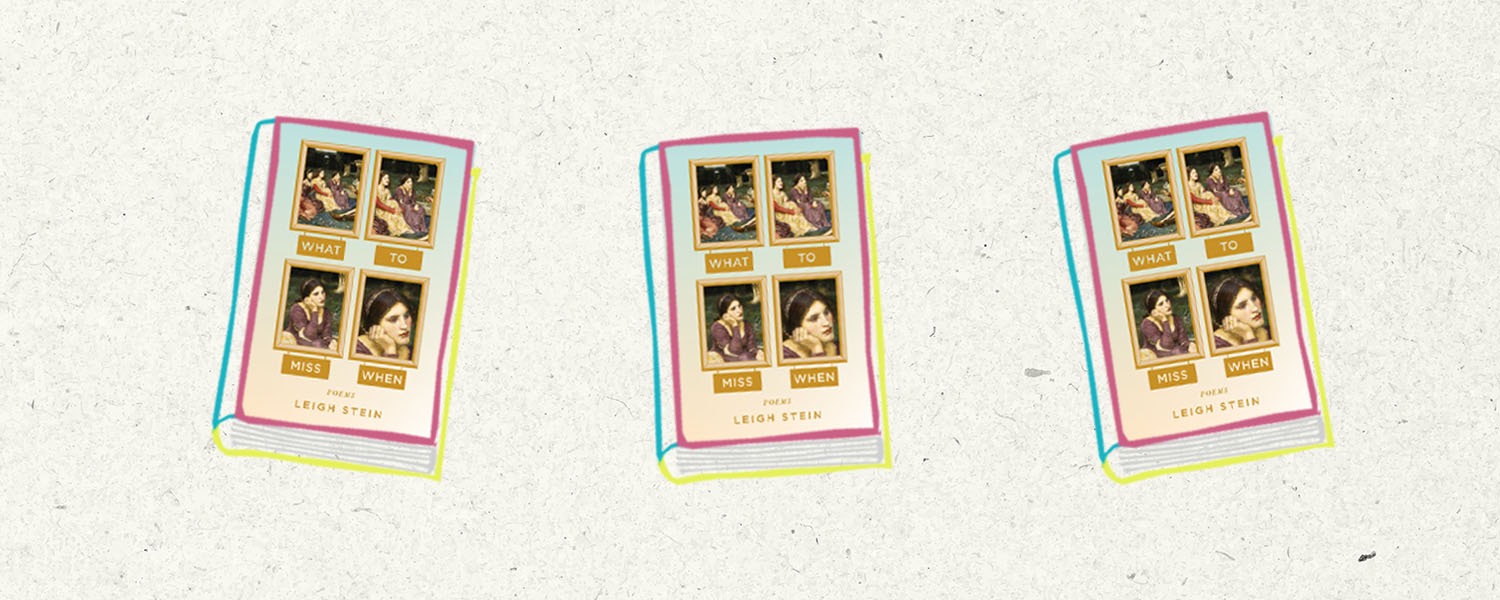
I was blown away by Leigh Stein’s novel “Self Care,” a satire of the wellness industry and #GirlBoss feminism, so I was excited for literally whatever the Jewish author was doing next. To my delight, that turned out to be a series of poems written in quarantine. The poems touch on the internet, pop culture, postponing a wedding, celebrities and so much more. Stein describers the collection as “an extremely online 21st century Decameron. Like Boccaccio, I write to offer solace to the ladies.” The collection was catalyzed by not just the pandemic, but a personal decision to give up drinking for 30 days (which then turned into 104 days). “If I hadn’t stopped drinking I would never have written What to Miss When. I still can’t believe poetry came back to me. It was a miracle in my own brain,” she tweeted. I am so thankful for her brain — and these poems.
Read if you’re into: thinking about quarantine and the pandemic. Also, poetry! The Jewish angle: Stein is Jewish; some poems touch on Jewish themes. Get it here.
8. Once We Were Slaves: The Extraordinary Journey of a Multi-Racial Jewish Family by Laura Arnold Leibman (August 24)
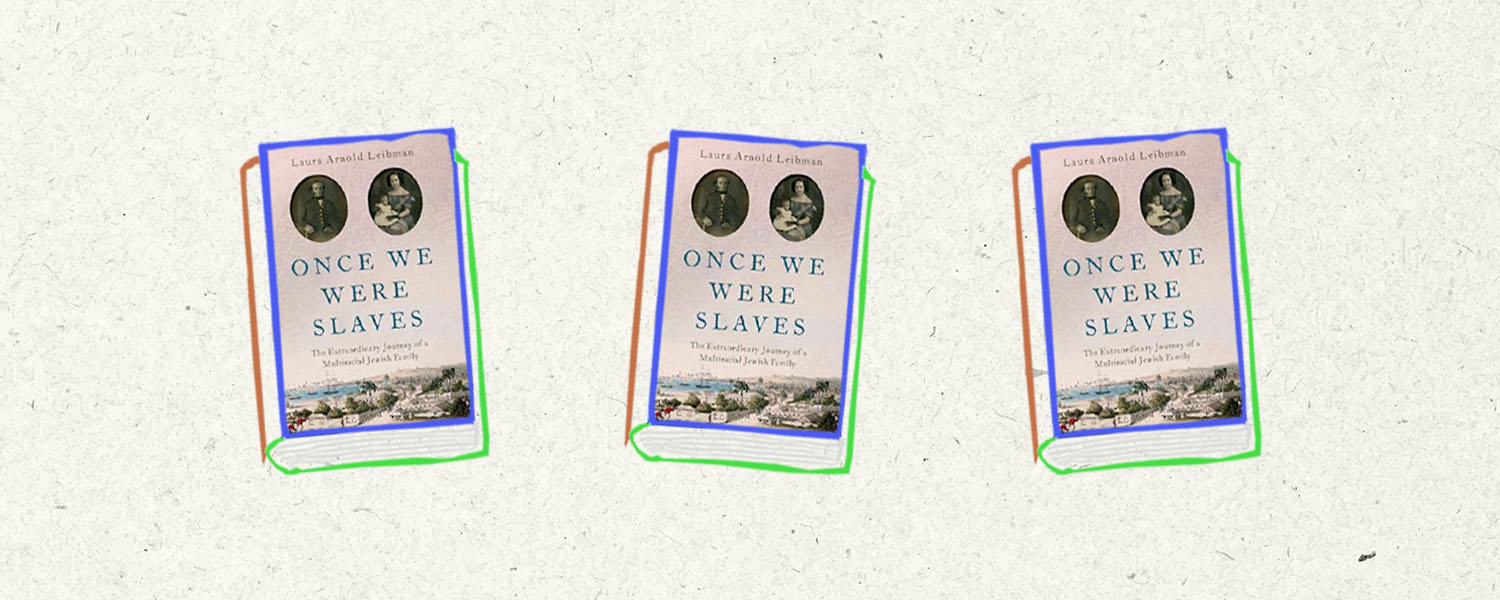
Blanche Moses was an “obsessive genealogist.” She was also a descendant of one of the most prominent American Jewish families, and Blanche always believed her maternal family were Sephardic Jews. But as she researched her family, she learned her grandmother and great-uncle were not Sephardic Jews, but actually began their lives as poor Christian slaves in Barbados. “Sarah and Isaac Brandon transformed themselves, becoming free, wealthy, Jewish, and — at times — white.” Laura Arnold Leibman dives into Blache’s story in “Once We Were Slaves,” but also tells a tale of race, Jewishness and ancestry in American history. Jonathan D. Sarna, an American Jewish history professor and author of “America Judaism: A History,” wrote that “what [Leibman] discovered will change the way American Jewish history is written.”
As Leibman writes in the introduction, “Sarah and Isaac’s ability to change their lives and their designated race—despite this knowledge—tells us as much about the early history of race in the Atlantic world as it does about the lives of early American Jews.” The title of the book comes from Deuteronomy 6:21, a line immortalized in the Passover haggadah: “Once we were slaves to Pharaoh in Egypt, and now we are free.” In an extremely readable book, Leibman traces the story of Sarah and Isaac, and of the history of other multiracial Jews who had both African and Jewish ancestry.
Read if you’re into: American history, thinking about race and ethnicity, multiracial Jews. The Jewish angle: The story is about a Jewish woman! Also, like book #1 on this list, Jewish genealogy plays a big role. Get it here.
Other Jewish Books of Note
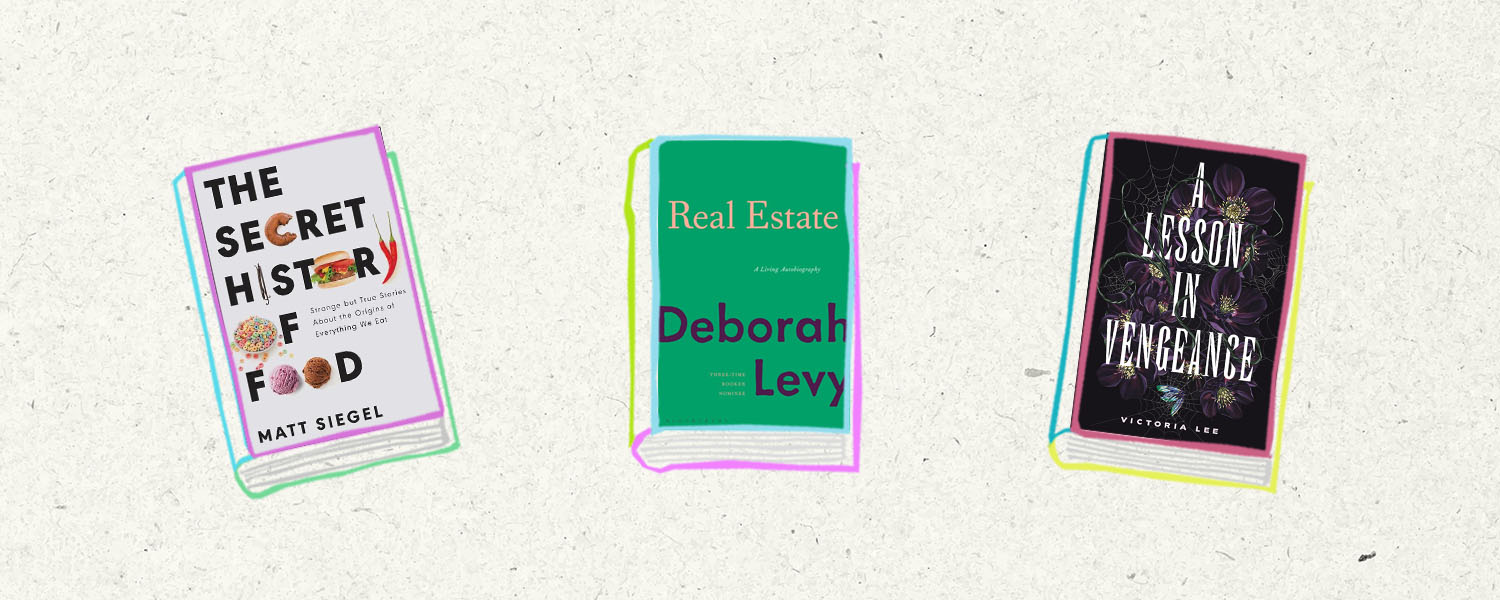
- Acclaimed British Jewish author Deborah Levy is back with the third, and final, installment of what she calls her “living autobiography,” “Real Estate.” In “Real Estate,” Levy focuses on the gendered nature of home. (August 24)
- “The Secret History of Food: Strange but True Stories About the Origins of Everything We Eat” by Matt Siegel is an entertaining look at little-known histories surrounding popular foods. The one I found most compelling: how ice cream helped defeat the Nazis. Yes, really. (August 31)
- Melissa Broder’s “Superdoom” is a collection of three of her out-of-print poetry collections, now reprinted in one place with a new introduction from the Jewish author. (August 10)
- “The Just: How Six Unlikely Heroes Saved Thousands of Jews from the Holocaust” by Jan Brokken (trans. David McKay) tells the story of how Dutch consul Jan Zwartendijk and Japan consul Chiune Sugihara helped save over 2,000 Jews from the Holocaust. (August 3)
- Merissa Nathan Gerson’s “Forget Prayers, Bring Cake: A Single Woman’s Guide to Grieving” is a meaningful guide to grief from a Jewish author. (August 17)
- “Miss Butterworth and the Mad Baron” is Julia Quinn’s first graphic novel. You may know the Jewish romance author from her wildly beloved “Bridgerton” series. (August 17)
- Jewish author Victoria Lee is back with “A Lesson in Vengeance,” “a dark, twisty, atmospheric thriller about a centuries-old, ivy-covered boarding school haunted by its history of witchcraft and two girls dangerously close to digging up the past.” (August 3)
- “The Last Mona Lisa: A Novel” by Jonathan Santlofer explores the theft of the Mona Lisa in 1911 and the present art world, where an art professor searches for the truth about his ancestor: the Mona Lisa thief, Vincenzo Peruggia. (August 17)
- “Do Not Disclose: A Memoir of Family Secrets Lost and Found“ by Leora Krygier is a moving memoir of a second-generation Holocaust survivor and secrets unearthed from a file of notes addressed to her father. (August 24)
- For fans of queer Jewish YA romance: “I Kissed a Girl” by Jennet Alexander features the story of up-and-coming actress Lilah Silver and makeup artist Noa Birnbaum. “Can the connection forged over long hours in the makeup chair ever hope to survive the glare of the spotlight?” (August 3)
- “Dirty Work: Essential Jobs and the Hidden Toll of Inequality in America“ by Jewish journalist Eyal Press is a “groundbreaking, urgent report from the front lines of dirty work—the work that society considers essential but morally compromised.” Press dives into the lives and burdens of those who perform “society’s most ethically troubling jobs,” from drone pilots to those who man “kill floors” of industrial slaughterhouses. (August 17)
- A new collection of Hilma Wolitzer stories, “Today a Woman Went Mad in the Supermarket,” brings together Wolitzer’s work from the ’60s and ’70s in a new collection — plus a brand-new story. (August 31)
